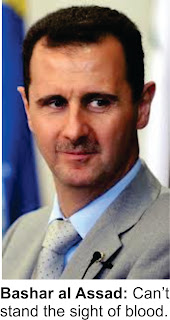Sometimes I have to conclude that
New Zealand is a confused little country. According to the 2013 census the
number of people who identify as having no religion has reached 1.6 million, an
increase of 26 per cent since the last census in 2006.
And yet a Massey University
survey taken in 2008 found that 72 percent of New Zealander’s believed in God.
The survey was of New Zealanders above the age of 18 and was said to have a
margin of error of 3 per cent.
I imagine that many of the
remaining 28 per cent who don’t believe in God still respect and support the
comparatively liberal moral values that Christianity has imposed on the Western
world and support the holiday seasons of Christmas an Easter for sensibly
secular reasons.
The new census figure disclose
that Catholic, Anglican and Presbyterian church membership have all contracted
while Pentecostal congregations have increased.
The number of followers of
Hinduism and Islam also increased.
This sort of information is
always imparted around Christmas when I suspect editors tell their junior
reporters to go out and find some stories to counteract this madness that we
call the festive season.
I’m a little confused because from
my observations the only people who don’t sing the national hymn “God Defend
New Zealand” with a surprising degree of enthusiasm at a rugby test are the All
Blacks themselves. And unambiguous religious services to commemorate ANZAC day
are becoming increasingly popular, particularly among the younger generation.
I was talking to a nurse recently
who did her training at Masterton Hospital in the 1970’s and is now a midwife
attached to Hutt hospital and she told me that most patients today are generally
unsure of their religious connections. They used to say Anglican, Catholic,
Presbyterian, Methodist or Baptist, but many now have no denominational roots
and, if asked, describe themselves as either Christian or atheist.
The end result is that whereas
once there was an army of church ministers swarming through the wards at all
hours of the day or night looking eagerly at the religious affiliations shown
on the cards at the end of the bed, the hospitals are now largely bereft of
clergymen and the comfort that faith can bring has diminished.
And so, given the season, I
thought perhaps we should re-acquaint ourselves with the founder of Christianity
and the best explanation I have encountered comes from Swiss-born American
theologian Philip Schaff (1819-1893) who said that: “Jesus of Nazareth, without
money and arms conquered more millions than Alexander the great, Julius Caesar
and Napoleon.
“Without science and learning He
shed more light on things human and divine than all the philosophers and
scholars combined.
“Without the eloquence of schools
He spoke words of life that were never spoken before or since and produced
effects which lie beyond the reach of orator or poet.
“Without writing a single line He
has set more pens in motion and furnished themes for more sermons, orations, discussions,
learned volumes, works of art and sweet songs of praise than the whole army of
great men and women of ancient and modern times.
“Born in a manger and crucified
as a criminal He now controls the destinies of the civilised world and rules
the spiritual empire which embraces one third of the inhabitants of the globe.
“There was never in this world a
life so unpretending, modest and lowly in its outward form and condition and
yet producing such extraordinary effects upon all ages, nations and classes of
men.
“The annals of history produce no
other example of such complete and astonishing success in spite of the absence
of those material, social, literary and artistic powers and influences which
are indispensable to success for a mere man.”
You can’t deny His existence; dare
you question His divinity?
Oxford University Don and famed
author C.S. Lewis in his book Mere
Christianity wrote the following: “I’m trying to prevent anyone from saying
the really foolish thing that people often say about Him: ‘I’m ready to accept
Jesus as a great moral teacher, but I don’t accept his claim to be God.’
“That is the one thing we must
not say. A man who was merely a man and said the sort of things Jesus said
would not be a great moral teacher. He would either be a lunatic – on the level
with the man who says he is a poached egg – or else he would be the Devil of Hell.
“You must make your choice.
Either this man was and is the Son of God, or else a madman or something worse.
You can shut him up for a fool, you can spit at him and kill him as a demon, or
you can fall at his feet and call him Lord and God. But let us not come up with
this patronising nonsense about him being a great human teacher.
“He has not left that option open
to us. He did not intend to.”
And so two thousand and thirteen
years on, during the festive season and beyond, wise men seek Him still.
Have a great Christmas!























